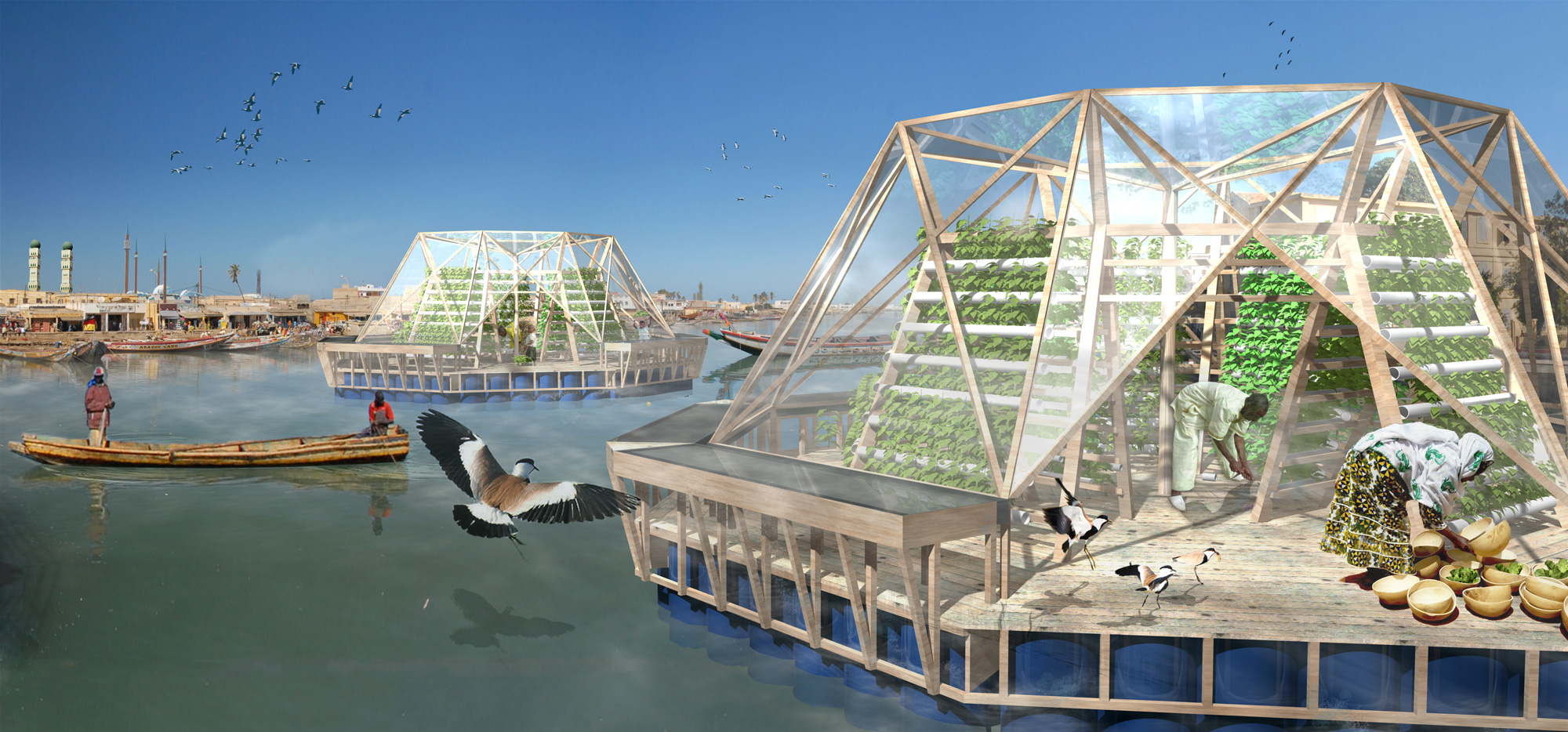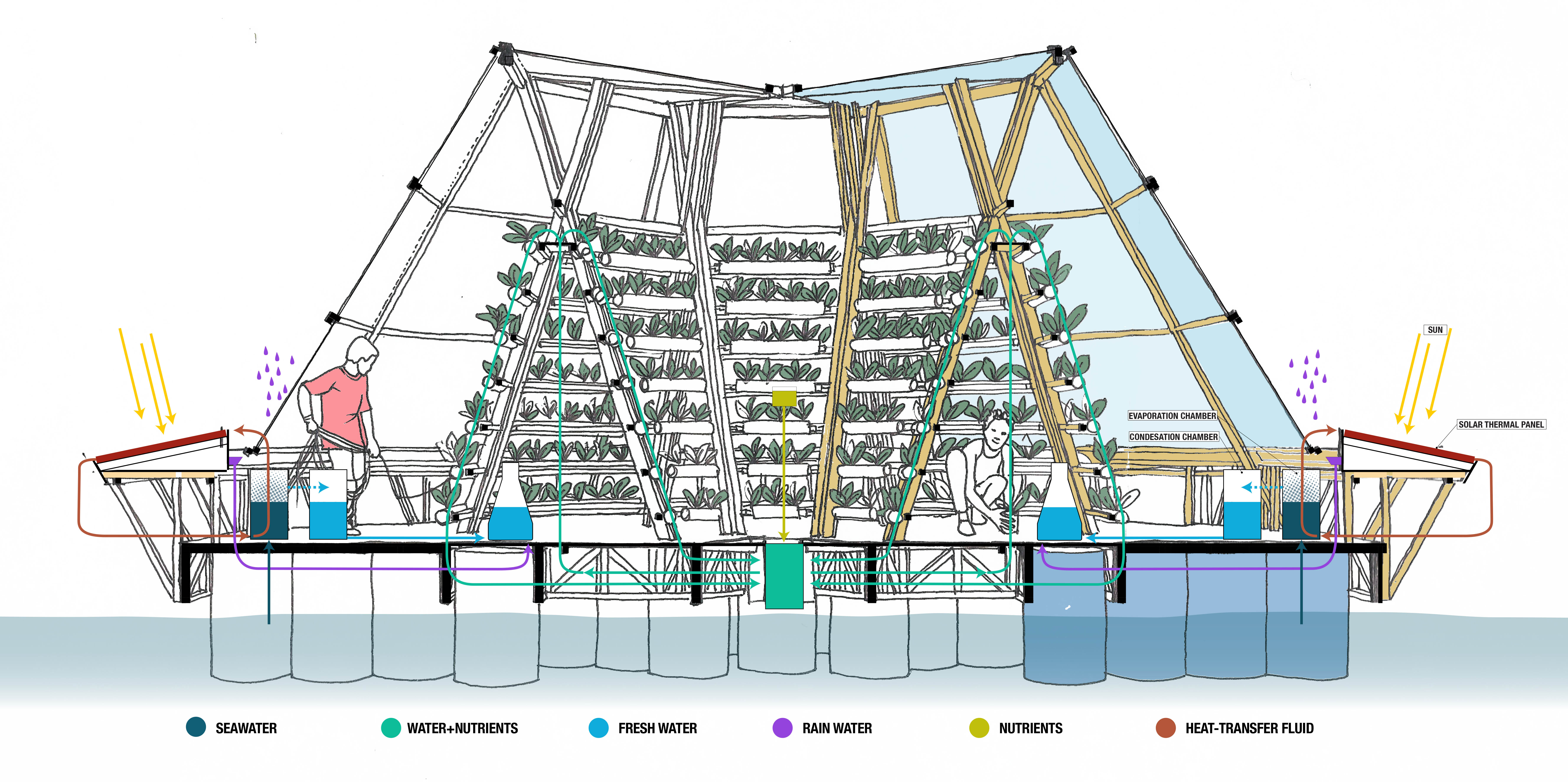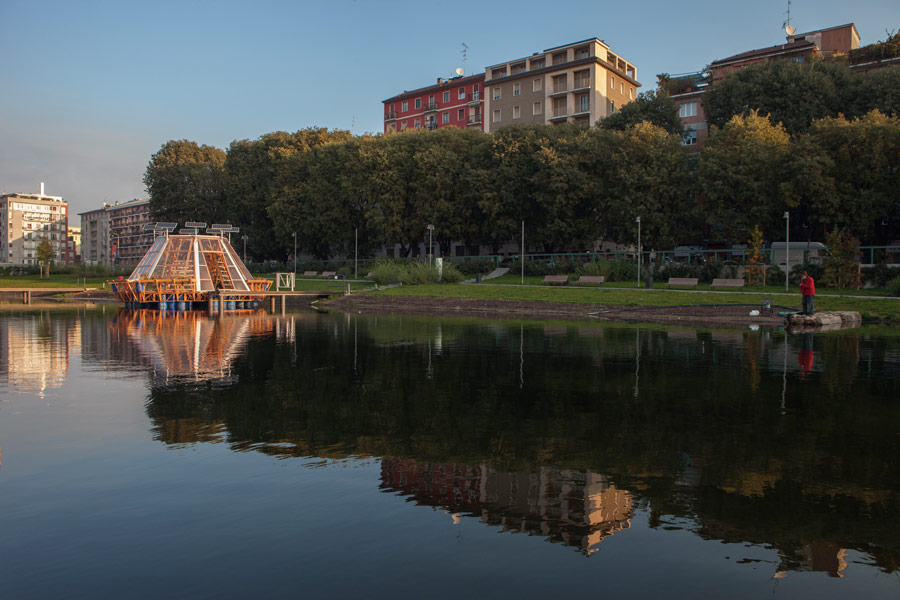Jellyfish Barge

Jellyfish Barge, la serra gallegginate
AUTHORS: Pnat. (Project: Antonio Girardi, Cristiana Favretto. Cultivation system: Elisa Masi, Elisa Azzarello, Camilla Pandolfi. Coordination: Stefano Mancuso)
Year: 2014-present
Location: Nomadic
Jellyfish Barge is the floating modular greenhouse for
urban agriculture that generates its own fresh water and energy, using only
solar power. It is an affordable, transportable and replicable solution to grow
food within the cities. The strength of its design lies in the concept of combining
a food production facility with a vital public space, providing both areas for
economic activities and for social interaction. Its multifunctional attitude
allows citizens to enjoy a weekly marketplace, allows farmers who manage the
structure to rely on a profitable business, and creates resilience and social
innovation for the community. All these values augment the attraction,
relevance and value of the installation area, thus acting as the engine of
regeneration at a larger scale.
How does it work
A typical installation is composed by 4 greenhouse
modules and one zip connection module. The connection module is the common
space where developing a weekly market, didactic or leisure activities such as
solarium, tai chi or whatever people and associations want to do. The
greenhouse can be used as an intensive production facility, as the extension of
bars and restaurants proposing local vegetables in their menu, or as a
community garden. At last people can watch vegetable growing and experience
agriculture in their daily life.

Inventors
Jellyfish Barge was conceived and designed by Antonio Girardi and Cristiana Favretto and has been developed by Pnat, which is a company spin-off of the University of Florence. The project was coordinated by the plant scientist Stefano Mancuso and the cultivation system was developed by the botanists and agronomists Camilla Pandolfi, Elisa Masi and Elisa Azzarello.
Awards


